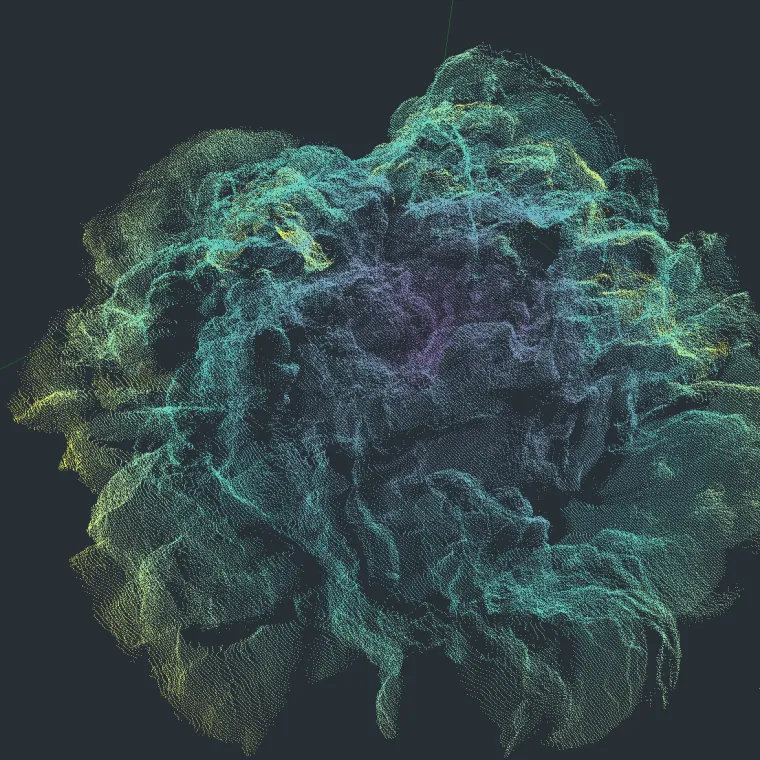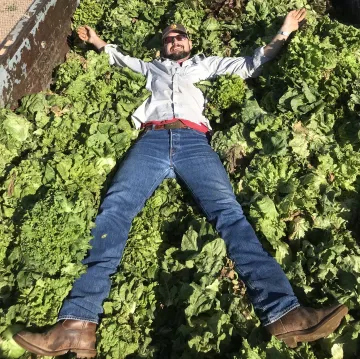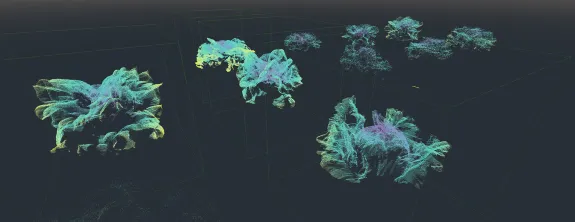PhytoOracle 2 VR
Duke Pauli, Principal Investigator
Devin Bayly, data and visualization consultant

WONDER HOUSE @ SXSW 2023 Experience:
Patio VR Bar
Saturday–Tuesday, March 11–14, Noon-8 p.m.
The PhytoOracle VR experience will guide you through a visualization project featuring multimodal data from the Maricopa Field Scanner, the world’s largest agricultural robot. This project explores how crop plants grow and respond to heat and drought stress, conditions that are becoming more prevalent with the onset of a changing climate and recent Colorado River water cuts, with a goal of developing more climate resilient plants to feed a growing population.
The sensors carried by the Field Scanner enable the generation of high resolution 3D representations of plants as they grow throughout the season in response to hot, arid conditions and imposed drought stress. However, because the Field Scanner generates so much data on these growing plants, up to 10 TBs a day, it becomes challenging for scientists to understand the relationship between plant growth and performance with a myriad of environmental factors.
The VR visualization application is a prototype tool that will allow scientists to leverage their expertise and domain knowledge to quickly explore and interpret these data. In addition to investigating these data in an interactive manner, this VR tool will greatly lower access barriers that these scientists and their collaborators currently face creating new types of collaborative spaces. Collaborators outside the University of Arizona will be able to use this VR experience to “transport” themselves into the field where they will be able to intuitively explore vast troves of sensor data without losing the essential spatial context of their surroundings. This application will also allow non-specialists to engage with this incredibly complex research project and experience the awe of watching a plant undergo its entire season’s worth of growth in moments. They will understand the progress that’s already being made in responding to climate change with resilient plants for agriculture and food production.
Image

Project Lead: Duke Pauli is an assistant professor in the School of Plant Sciences here at the University of Arizona. I was born and raised in Montana where I earned my PhD in Plant Sciences from Montana State University in 2014. My graduate research focused on the application and integration of genomic technologies to the breeding of improved malting barley varieties for the state’s growers. Upon completion of my PhD, I moved to Ithaca, New York where I was a Cotton Incorporated Postdoctoral Fellow in the lab of Dr. Michael Gore at Cornell University. There, my research focused on using high-throughput phenotyping (phenomics) to reveal the genetic basis of stress adaptive traits in cotton as well as how phenomics could be more broadly applied to crop improvement. Since starting my faculty position here at UA in 2018, I have been focused on developing a research program centered on understanding the genetic basis of stress adaptive traits in crop plants through various mechanisms including phenomics, field-based physiology, and quantitative approaches such as models. Broadly, I am interested in all aspects of agriculture from the historical perspective to the actual agronomic practices – I love being involved in ag!
Image



